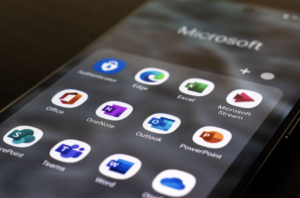
By Elaine Hua, Assistant Researcher at King’s Commercial Awareness Society
Microsoft recently made an acquisition deal with Activision Blizzard for $75bn. Activision Blizzard is the maker of games, such as Call Of Duty and World of Warcraft. The acquisition stirred reaction among competition regulators around the globe who fear Microsoft is gaining more market power and abusing it to reduce competition by establishing a monopoly. This could be done, for example, by limiting Call of Duty only on Xbox (Microsoft’s game console) and not Playstation (Sony, Microsoft’s biggest rivals on the market, game console). This month, the US competition law regulator, the Federal Trade Commission, is suing Microsoft for their anti-competitive behaviour. Prior to that, the UK competition law regulator, Competition and Market Authority (CMA), also issued a competition probe against Microsoft in early September, accusing it of harming Sony and other makers of game consoles, and demanded a response from Microsoft.
UK/EU Competition law (or Antitrust Law in the US) are rules established to prevent companies from abusing their dominant position in the market to harm consumers, for example, by setting higher prices, decreasing product quality or making it difficult for consumers to access the product. Essentially, the goal of competition law is to ensure consumer welfare and protect consumers against the big market players. Competition law is increasingly significant nowadays as big tech companies are gaining large amounts of money by manipulating the market, usually in the form of fixing prices among competitors (this is known as horizontal agreements. While mergers between competitors on the same level are called horizontal mergers). However, the situation in Microsoft/Activision Blizzard is a vertical merger between supplier and distributor as Microsoft, a leading distribution platform, bought a top content maker. A vertical merger could potentially harm competition in the market as some distributors are deterred from obtaining the product and the distributor who has access to the product can abuse its position and sell the product for a higher price.
Recent Developments
Microsoft signed a ten-year deal with Nintendo to distribute the game ‘Call of Duty’ to the game console company. In addition, to win over the competition regulators, Microsoft claims it will do the same for any other game console and that it is ready to discuss with Sony, its biggest rival in the market.
Social Impact
The rapid developments of competition law, for example, the recent adopted Digital Market Act (DMA) in Europe, as well as the fast reaction of UK/EU/US Competition Authorities in threatening Microsoft with a probe, signifies competition regulators’ determination in tightening the rules. This is in response to the growing control of big tech companies in the market and its politics (for example, through lobbying the members of Parliament). In the past, companies benefited from abusing their dominant position in the market by earning large profits, which were monumental compared to the damages they had to pay for infringing competition law. The new rounds of stricter competition law regulations mean that companies are now incentivised to comply with the law. This is a positive change for consumers who will be able to purchase products in a competitive market (which enables lower prices than a market monopoly)
Legal Impact
The UK Competition and Market Authority (CMA) was the first global competition regulator to react to the merger. It threatened Microsoft with a competition probe. Following this, a month later, the European Commission reacted to the merger expressing a similar concern, which was then reiterated by the US antitrust authority. The CMA’s decision is significant in showing the UK taking initiative to become a global leader in striking down anti-competitive mergers and agreements. Brexit also gives CMA more power in this respect as those initiatives used to be taken by the European Commission in Brussels. Lawyers working for Big tech companies will need to take more precautions against CMA supervision
What If The Acquisition Went Through?
Despite competition regulators around the globe endeavouring to delve into the details of this acquisition and seeking to block it, the deal could possibly go through. This is because Microsoft promised it would not limit Activision Blizzard games to Xbox and would provide it to Sony, Nintendo, and other game console platforms. However, what if Microsoft goes back on its promise? That would lead Sony and other game console makers to sue Microsoft based on the vertical merger harming competition. The courts will then reach their decision by weighing the pro-competitive and anti-competitive factors associated with vertical integration on an individual case-by-case basis under the Clayton Antitrust Act of 1914.
I haven’t checked in here for some time as I thought it was getting boring, but the last several posts are great quality so I guess I’ll add you back to my everyday bloglist. You deserve it my friend 🙂